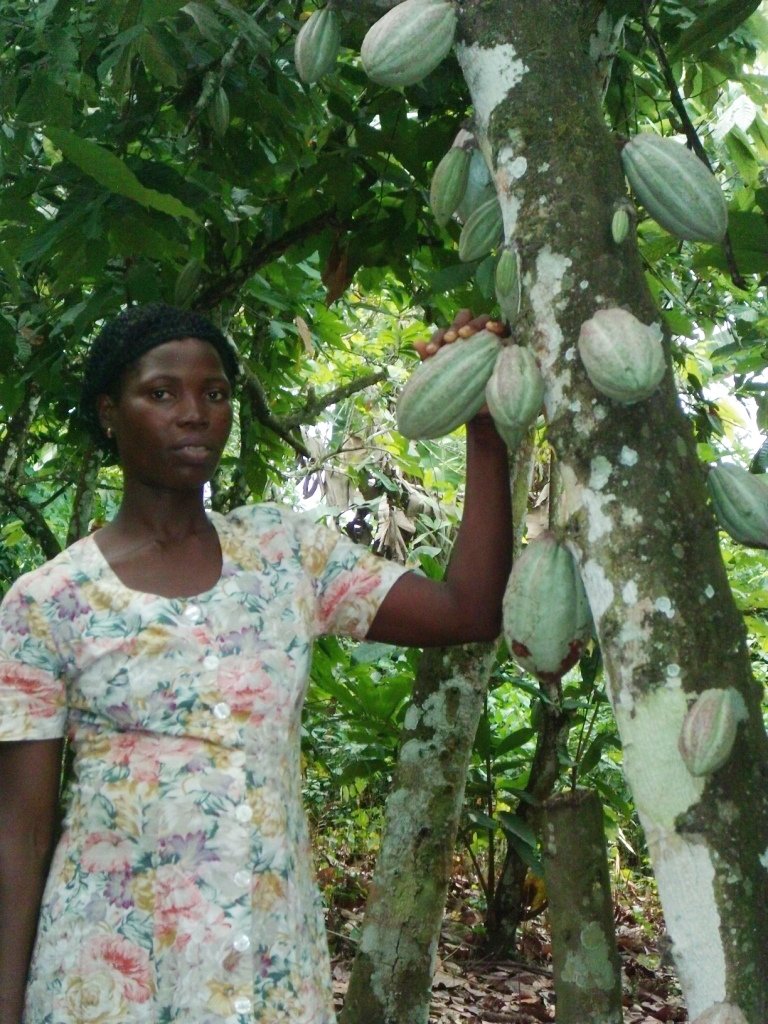Chocolate on Valentine’s Day is more or less a requirement for many of us. Chocolate has a deep and rich story, from bean to bar—but it is an industry that is acutely threatened by a changing climate, an ageing workforce, ageing trees, pests, and diseases.
Though originally a product of Mesoamerica, about seventy percent of cocoa today is grown in Africa. Cote d’Ivoire and Ghana are international leaders on cocoa production, but these countries also experience widespread deforestation as farmers encroach into forests to make room for more cocoa farms.
Read More: This Is How People Celebrate Love Around the World
In Ghana, 700,000 farmers make their livelihoods from farming cocoa. Vida Tsatso Boaful is one such cocoa farmer from Nkranfum, Ghana. Vida participated in a Rainforest Alliance training on sustainable agriculture practices, and she now uses climate-smart agricultural techniques on her farm. That means that Vida grows her cocoa in such a way that she gets bigger yields from the trees she already has, and doesn’t have to clear forest to expand her crop.
“I have now realized there were so many things we used to think and do that were normal practices from time immemorial,” said Vida. “We just did not think that some of these practices were negatively affecting our lives, the soil, bodies of water and our environment.”
From 1988 to 2010, cocoa cultivation in Ghana expanded by nearly 2.5 million acres. At the same time, the amount of cocoa produced per acre decreased because of poor management practices and aging cocoa trees.
Read More: Victoria’s Secret Just Made a Big Move to Help the Environment

But since her training session and the integration of climate-smart practices, Vida’s production has increased dramatically.
“Since I started practicing what I had been taught during the training sessions, my yield in cocoa production keeps improving,” she said. “It has increased from about three bags per acre to about 10 bags per acre.
“Our children are also now happily in school,” she added.
The methods Vida uses on her farm help protect the remaining forest cover in Ghana, keep her cocoa trees healthy for longer, and increases her yields.
Read More: The Future of Climate Change Could Be Up to How Cities Respond
Vida’s training program focused on female cocoa farmers. Studies show that women who produce cocoa as a cash crop typically spend a much higher proportion of their earnings on household food needs than men do. These spending patterns demonstrate that women serve as a vital link between healthy landscapes and thriving communities.
“I used to feel intimidated amongst my fellow farmers but after some time in this program, that inferiority complex has vanished to the extent that I can even speak boldly in the presence of the men,” she said.
“I think other women in other cocoa farming communities can do the same, or even better, when trained.”
To support farmers like Vida, and support healthy forests, waterways, and biodiversity, look for certified chocolate for Valentine’s Day. Start your search here.
Take Action: Search for a Retailer or Brand That Carries Certified Chocolate Near You